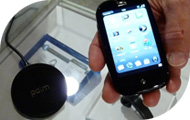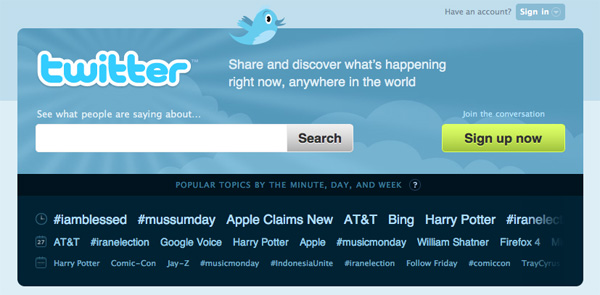
Microsoft warns about activation crack, but 'pleased' people want to install Windows 7
As to be expected, Microsoft responded to news today that Windows 7 activation had already been cracked by telling Betanews that customers should not pirate the operating system. But the company also said it was happy to hear that people wanted to install Windows 7.
Following the publication of an activation crack for Windows 7 mere days after it was released to manufacturing, we contacted Microsoft to hear its take on the issue, which appears to be a repeat of the Windows Vista crack from 2006. Windows XP activation was also cracked not long after its launch.

New bill could make texting while driving illegal nationwide
A bill introduced in the U.S. Senate today seeks to make text messaging while driving illegal.
The bill is sponsored by Democratic Senators Charles E. Schumer (NY), Robert Menendez (NJ), Mary Landrieu (LA), and Kay Hagan (NC) and impels states to draft laws that ban texting while driving, or otherwise face a 25% cut in their annual highway budget. Such laws have already been passed in 14 states and the District of Columbia.

LG hooks up Vudu with Netflix, YouTube
The streaming-enhanced device market may still be dominated by Netflix, but video on demand service Vudu continues to fight its way into the picture. Today, the company announced its partnership with South Korean company LG will put Vudu directly on connected HDTVs.
Vudu debuted its own streaming set top box nearly two years ago, and managed to be one of the first companies to pump out HD streams. Though it had partnerships with such companies as Sharp and Best Buy, the streaming service was only available on Vudu's own hardware. Netflix, Amazon on Demand, and CinemaNow meanwhile all moved to put their services on hardware from a number of different manufacturers.

Windows 7 Ultimate cracked already
UPDATE 6:30PM ET Microsoft has responded to news of the crack, telling Betanews that it's "pleased" customers are eager to upgrade, while warning about pirated copies.
Even though it's been In the hands of OEMs for barely a week and has not even made it to general availability yet, Windows 7 has already been cracked.

Palm Pre can't help Sprint from losing $384 million and 257k subscribers, but prepaid is booming
Sprint, the United States' third largest mobile phone network operator reported its second quarter earnings today, showing a total loss of $384 million, and 257,000 subscribers. For Sprint, these numbers actually represent a minor improvement.
In the past two years, Sprint's number of subscriptions has dropped by more than 7 million, or roughly one million subscribers per quarter. This quarter Sprint lost 991,000 contract subscribers, but coupled it with the biggest gain in prepaid customers from any U.S. mobile carrier in three years (more than 777,000).

Microsoft and Yahoo search deal: Here's what you need to know
With the deal signed and ink drying, you may be wondering about the details behind the historic Microsoft and Yahoo search agreement, which may finally begin to put some pressure on Google's dominance in search. We break it down for you.
The Basics

Twitter's evolution starts with a new homepage
In Twitter's efforts to make the microblogging service more welcoming to first-time users, a new homepage has been unveiled which focuses on search and trending topics.
"We have a lot of work to do when it comes to the quality of our search results and trend analysis but repositioning the product to focus more on discovery is an important first step in presenting Twitter to a wider audience of folks around the world who are eager to start engaging with new people, ideas, opinions, events, and sources of information," Co-founder Biz Stone said in the site's blog.

Day 2 of Tenenbaum trial sees industry folk, family on the stand
Opening arguments Tuesday in Joel Tenenbaum's file-sharing trial covered both the you-don't-know-he-did and the so-what-if-he-did angles the defense advanced in pre-trial discussions, with various witnesses testifying that they hadn't used the "sublimeguy14@KaZaA" account on Mr. Tenenbaum's machine even as defense lead Charles Neeson told the jury that "Everyone could download [songs] for free. And millions and millions did. Joel was one of those millions."
Writing for Recording Industry vs The People, Mark Bourgeois supplied detailed information on the five witnesses and two items of deposition testimony presented on Tuesday. The depositions were given by Mr. Tenenbaum's sisters, who spoke about their brother's music tastes and said they'd never downloaded from his machine.

Microsoft and Yahoo have sealed the deal
UPDATE: Microsoft and Yahoo issued joint statements this morning announcing their search partnership. As expected, Bing will power Yahoo's search and Yahoo will deal with sales, advertisement and "providing consumers with great experiences with the world's favorite online destinations and Web products."
Microsoft CEO Steve Ballmer said, "This agreement with Yahoo! will provide the scale we need to deliver even more rapid advances in relevancy and usefulness. Microsoft and Yahoo! know there's so much more that search could be. This agreement gives us the scale and resources to create the future of search."

Once more into the courtroom with The Pirate Bay
It seems as if the high-profile trial of The Pirate Bay's operators hasn't really changed much at all in the eyes of Hollywood, as thirteen studios have banded together to sue the site into closing down.
The case was filed in Stockholm District Court on Monday and requests that the site cease and desist from pointing to copyrighted material. According to a Swedish news site given access to the documentation, about 100 movies and TV shows are listed in the complaint. The complaint asks for an injunction to keep the site from operating and mentions compensation for court costs.

California, Arizona will get first Microsoft Stores
The first of Microsoft's planned retail stores will be opening in Scottsdale, Arizona and Missioin Viejo, California, according to reports today.
Images of Microsoft's potential in-store design were leaked late last week and later confirmed by Microsoft to be real, though they were dismissed as "early prototypes" of plans for their retail stores.

Microsoft issues emergency patches for Visual Studio vulnerability
Microsoft today issued security updates for the Active Template Library (ATL) which address a vulnerability that could allow remote code execution.
Libraries are collections of codes upon which software is built, and Microsoft's ATL is used by developers to create controls or components (such as Automation and ActiveX) in Windows. But any components or controls created with the vulnerable version of ATL may now become vulnerable due to how ATL is used or due to issues in the ATL code itself.

AT&T makes Barnes and Noble Wi-Fi free
To tie in with Barnes and Noble's increasing emphasis on eBooks, AT&T announced today that Wi-Fi connections at any of the 777 United States Barnes and Noble bookstores will be free for anyone to use. Previously, only AT&T subscribers had free access to the network.
Last week, Barnes and Noble launched a Web-based eBook store and free eReader apps for the iPhone/iPod Touch, BlackBerry, and Windows XP/Vista and Mac OS 10.1+. The bookseller is gearing up for the launch of its own eBook reader, made by Plastic Logic which will compete with the market-leading Amazon Kindle.

Chinese censorship extends to gang-themed games
Yesterday, the Chinese Ministry of Culture announced that gangster-themed online games have been banned in China as they pose "a serious threat to distort the rule of law and moral standards of society."
Games which promote "fighting, murder, robbery, rape, cheating, or other antisocial behavior" have been deemed illegal content. Web sites hosting, publicizing or linking to games that have organized crime as a major theme face severe punishment. The severity of punishment, however, was not explained by state media.

Sprint to acquire Virgin Mobile USA for $483 million
Sprint, the United States' third largest Tier 1 mobile carrier, will be acquiring mobile virtual network operator (MVNO) Virgin Mobile USA for an estimated total of $483 million.
Sprint already owned 13.1% of Virgin Mobile USA, and the MVNO was the first prepay-only business to lease Sprint's mobile network. After the deal closes, Virgin Mobile USA's CEO Dan Schulman will lead Sprint's prepaid business, which already includes Boost Mobile.



